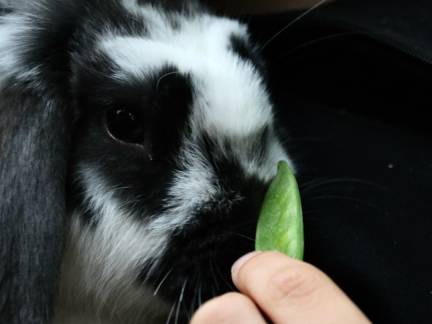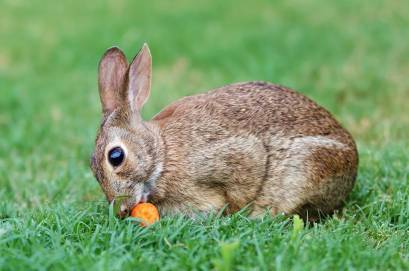Vaccinations are necessary because there are no treatments. There are various vaccines available for rabbits. As rabbit owners, people have to deal with the stress of the risk of viral disease. However, there are many things we can do to avoid myxomatosis or even calicivirus and start giving our pets the best possible life. You could even let them stay in the garden longer. Before you do that, make sure that your rabbit’s shots are up to date. Suppose you just got a rabbit as a pet or already have one. This is vital information about its immunization status, available vaccinations, and how to keep your rabbit from getting sick. Even if you keep your rabbits away from other rabbits, they could get Myxomatosis or RHDV-2 (Rabbit Hemorrhagic Disease). Getting vaccinations from rabbit vets for rabbits is an excellent way to protect your pets.
Connect with a verified veterinarian in minutes. Licensed vets are available 24/7 to answer your questions. No need to worry about your furry family member.
Is It Necessary To Vaccinate Rabbits?
Even though it’s not required by law to vaccinate pet rabbits, we strongly suggest it to keep them from getting infections that could kill them. It’s essential for both you and your rabbit that you go to your yearly vaccination appointment.
Why Do Rabbits Need Vaccination?
Here are the essential facts about these terrible rabbit diseases.
Myxomatosis
- Domestic rabbits don’t have to get close to wild rabbits to catch them.
- It spreads quickly, and fleas, mosquitoes, midges, and mites are the ones who spread it.
- Symptoms include discharge from the nose and eyes, eye swelling that can cause blindness, swelling, loss of appetite, redness/ulcers, trouble breathing, and tiredness.
- Even with the best care from a vet, only a small number of pet rabbits recover from Myxomatosis, so they must be vaccinated.
Rabbit Hemorrhagic Disease Virus (RHDV-2)
- RHDV2 is easily spread when rabbits come into direct contact with each other or with contaminated places or things, like dead animals or animal products.
- RHDV viruses are very contagious, and up to 100% of people who get them die.
- RHD takes between 1 and 5 days to show signs of infection after being exposed to it.
- Rabbit hemorrhagic disease can’t be fixed in any way. Most deceased wild rabbits have blood around their noses.
- Vaccination is the most effective way to prevent disease caused by some strains of RHDV.
What Kinds Of Rabbit Vaccines Are There?
Vaccinating your rabbit once a year could protect it from Myxomatosis and VHD as early as five weeks old. In some instances, our veterinary doctors may recommend more frequent vaccines.

Review symptoms, medications & behavior to keep your pets healthy with a Vet Online in just minutes.
Ask a Vet Live Now1. RHDV2 Vaccine
Now, people in 45 states in the United States can get the RHDV2 vaccine. Even though the vaccine has not yet been fully approved by the FDA, early research shows that it is safe and effective at keeping people from getting sick. After a few days, the vaccination can cause a small amount of swelling where the shot was given, a mild fever, and tiredness.
2. Myxomatosis Vaccine
Myxomatosis kills pet rabbits, and there is no treatment for it. Some signs are feeling sleepy, swelling, a high temperature, and having trouble breathing. Myxomatosis can be spread by fur mites, fleas, black flies, and sick rabbits, but not directly. Myxomatosis has been found in rabbits kept as pets in Mexico, Oregon, and California.
Conclusion
Fortunately, your rabbit can be protected from fatal illnesses with an annual vaccination; by receiving an injection against these illnesses each year, you can be sure your rabbit is receiving the best possible defense. Regular vaccines are extremely important. Even though the vaccine doesn’t always stop the disease from spreading, vaccinated rabbits get sick less often and less severely. If you take a rabbit to the vet quickly, it has a good chance of getting better, too.
Connect with a verified veterinarian in minutes. Licensed vets are available 24/7 to answer your questions. No need to worry about your furry family member.

Tom
Tom has always loved to write since he was little - he wanted to be either a writer or a veterinary doctor, but he ended up being a professional writer while most of his works are based on animals. He was born in San Francisco but later moved to Texas to continue his job as a writer. He graduated from the University of San Francisco where he studied biotechnology. He is happily married and a soon to be father!
Review symptoms, medications & behavior to keep your pets healthy with a Vet Online in just minutes.
Ask a Vet Live Now



